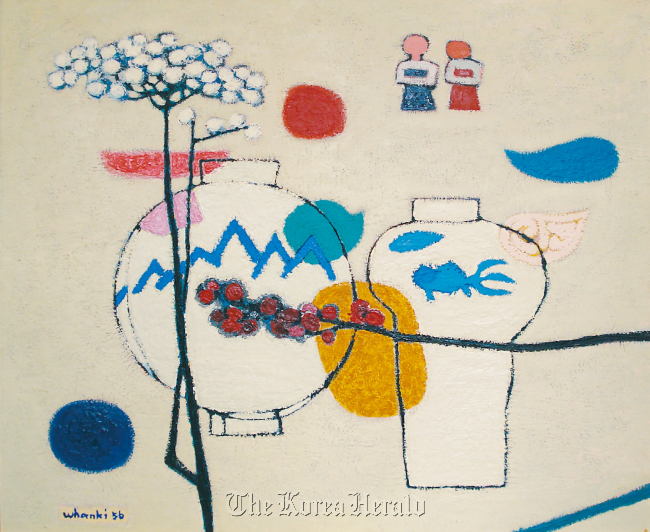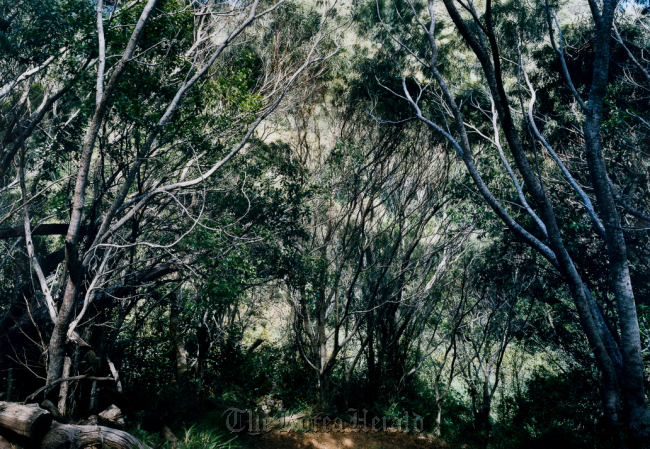Following is part of a series exploring unique museums, collections and the passionate collectors behind them. ― Ed.
Starting an art collection is not an easy task. It takes thorough research and study of artwork and artists, and careful consideration before spending money, especially when you expect a profit from the artwork in return.
But for some of Korea’s most seasoned collectors, spotting the right artwork is love at first sight.
The first artwork purchased by president Byun Ki-wook of Samhwa Travel was a grape painting by an unknown artist from a small store located in an underground pathway in central Seoul. He wrote later that he bought it primarily because he liked it and because he was into wine culture at the time. It still hangs in his office.
Each collector has a story to tell on how they began their collections and their first encounter with the artwork they still cherish to this day.
Gana Art Gallery has gathered the favorite collections of some of the most experienced collectors in Korea under one roof at the exhibition, “My Friend, My Prized Collections,” the first exhibition of this year that marks the 30th anniversary of the gallery.
The exhibition features around 70 pieces on loan from 50 collectors. Although modern paintings form the majority of exhibited works, the show includes some old calligraphy works, old royal paintings, ceramics, sculptures and foreign artwork as well.
Korean artists range from Joseon-era painter and calligrapher Kim Hong-do to modern and contemporary artists such as Lee Jung-seob, Park Soo-keun, Han Mook, Lee U-fan and Chon Kyung-ja. Foreign artists include Andy Warhol, Vietnam’s best-known painter Bui Xuan Phai and Chinese artist Yue Minjun.
Some of the collectors, such as Yoo Hong-joon, are well-known art historians, while others are being revealed to the public for the first time.
“Foreign collectors often unveil their collections to the public, but Korean collectors hesitate to do so because art collections are largely perceived as speculative investments by wealthy people in Korea,” Lee Kyung, executive director of Gana Art Gallery, said in a press conference last week.
“Putting together their collections wasn’t easy because the collectors were concerned they would receive a negative response from the public. I don’t think we’ll be able to see this kind of exhibition again in the near future,” said Lee.
The art pieces vary in value, but were bought primarily based on the collectors’ love and appreciation of fine art.
“Once they decided to reveal their collections, they were curious about other collectors’ collections. We saw collectors considering which pieces to pick and asking what other collectors are bringing ― it was a competition over who had better aesthetic taste,” said Lee.
The exhibition presents some rare pieces that haven’t been shown to the public recently.
A royal painting that depicts the 50th-birthday celebration of King Gojong, once owned by a foreign art collector with an extensive collection of Korean antiques, is a piece that became known to Koreans when it went on the block at Sotheby’s.
 |
“Garden” by Kim Hwan-ki. (Gana Art Center) |
Early works of Kim Hwan-ki, Korea’s first-generation abstract painter, are on exhibit. His “Garden” painting (1956), introduced to the public for the first time in Korea after it was auctioned in Hong Kong last year, is receiving attention with its relatively good preservation compared to the artist’s other paintings.
“Color tones of many of the Korean paintings have changed due to the burning of coal briquettes (in houses) in the old days. But this painting is in quite good condition without changes in colors and overall tone because it was (being held) overseas,” said Lee Jang-eun, chief curator of the gallery.
Kim’s other earlier works include a landscape painting before his pursuit of abstract painting began and the red-dot painting which is considered fresh to many people who associate the artist with small, repeated blue dots that were regular motifs in his works.
For some collectors, purchasing an artwork is more than an aesthetic activity.
Kim Young-ho, chairman of Ilsin textile manufacturing company, bought a painting of artist Ko Young-hoon, famous for hyperrealism, at the graduation exhibition of the artist. The artist recalls that the sale of the painting was a tremendous help for him as he was financially struggling at the time.
 |
“Paradise 33, Kauai” by Thomas Struth. (Gana Art Center) |
Thomas Struth’s “Paradise 33,” a photograph of Kauai Island, has become a reminder of the president of Byucksan Engineering Kim Hee-geun, his company’s philosophy in green energy and environment conservation.
“Art collecting has a significant role in supporting artists, and contributing to the art development of a country,” said Lee, executive director of the gallery. “I hope the exhibition changes people’s perception of art collecting so that it can be a driving force to revive the depressed art market.”
The exhibition runs through April 14.
■ Gana Art Gallery (02) 720-1020
● Location: 97 Pyeongchang-dong, Jongno-gu, Seoul
● Hours: 10 a.m.-7 p.m. every day
● Admission: Free
For more information, visit www.ganaart.com
By Lee Woo-young (
wylee@heraldcorp.com)









